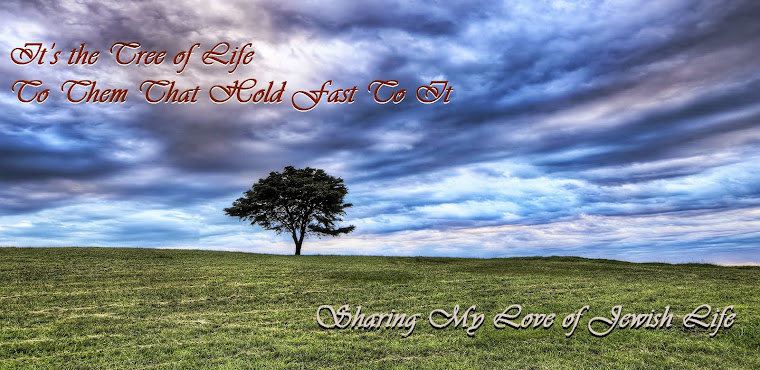Parshas Teruma is well-known for Divrei Torah that speak of what it meant when God instructed Moshe to speak to Bnei Yisrael and “let them take for Me a portion from every man whose heart motivates him.” This leads to all sorts of discussions on topics as direct as what the Israelites had to donate (and from where) to more esoteric contemplations on intent and giving a gift to Hashem.
Friday, February 19, 2021
Parshas Teruma - Woodworking and Weaving
Friday, February 12, 2021
Parshas Mishpatim: You, Yous, and the Foundation of Being Better People
I have often wondered why the English language, unlike so many other languages, no longer has a proper distinction between second person singular and second person plural. No matter how many people an individual is speaking to, one or many, they are all addressed as you. Because of this lacking, when one reads the parsha in English, one might easily miss subtle nuances in the text, such as that which happens in Shemos 22:22-23: “If you (s) do mistreat them [the stranger, the orphan, or the widow, all mentioned in 22:20-21], I will heed their outcry as soon as they cry out to Me, and My anger shall blaze forth and I will put you (pl) to the sword, and your (pl) wives will become widows and your (pl) children orphans.”
Saturday, February 6, 2021
To Be a Goy Kadosh (extra post for Yisro)
One of the most powerful and beautiful injunctions in the Torah is the commandment to the Jewish people to be a goy kadosh, a holy nation. With such weight put to this singular role, it is surprising to look, analyze, and assess the transformation of the word goy from a general term for a nation to a word that our children are indoctrinated to immediately associate with others, with outsiders, with people who are lesser.
This Dvar Torah was actually started months ago, when a
child, not my own, made a derogatory comment about goyim and was unable to
accept or process the fact that the term goy, in its pure, original meaning,
could be used for the Jewish people just as much as for the rest of the world.
I apologize now for those who will find my language demanding or hashkafically
challenged. This is truly me sharing from my heart.
In teaching our children to disparage, to hate or disdain, "the goyim," we are doing terrible damage to ourselves. Hashem literally instructs us, just before giving us His greatest gift, to “be a mamlechas cohanim and a goy kadosh.” Hashem is appointing us an incredible opportunity! We are a nation chosen to be able to connect with the divine and to represent Hashem’s greatness in the world. Why does this need to be done at the expense of others?
When we build ourselves up only by putting others down, we are actually making ourselves so much smaller. Of course, we have a necessity to keep ourselves separate, to secure the neshamos of our children and the precious gift of the Torah that is our inheritance. Without question we do not want our children emulating the outside world - but when you tell them how lowly the goyim are and then they meet fine, upstanding people, what does this say about our own perception of others who are also Betzelem Elokim... and then we wonder why children won't behave properly for their non-Jewish teachers! Certainly, we have been forewarned that the other nations will persecute us, but they are persecuting us at God’s will for our aveiros, so their persecution - when it is real and not simply perceived - is not an excuse to hold our heads higher and speak ill of them, but rather it is a means for us to check our egos and realign ourselves with our mission.
When we look at the world, we have to stop seeing and thinking in terms of us versus them, that's not the world Hashem wanted us to build. He gave us the Torah so that we have the power of creating a society with us leading them, showing them the way to being ovdei Hashem.
When we read Parshas Yisro we look at the amazing words of the Aserest Hadibros, and we see the foundation steps to building a moral civilization. That’s not a civilization just for us, but Hashem’s goal for all of the world. Let us strive to live up to our roles in the greater world by focusing on our beauty, our grandeur, and our responsibility, and the rest of the world as the creations of Hashem whom we need to inspire.
